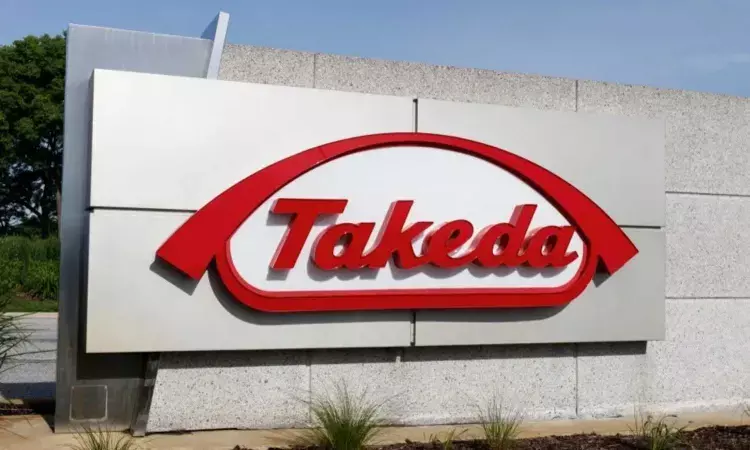- Home
- Medical news & Guidelines
- Anesthesiology
- Cardiology and CTVS
- Critical Care
- Dentistry
- Dermatology
- Diabetes and Endocrinology
- ENT
- Gastroenterology
- Medicine
- Nephrology
- Neurology
- Obstretics-Gynaecology
- Oncology
- Ophthalmology
- Orthopaedics
- Pediatrics-Neonatology
- Psychiatry
- Pulmonology
- Radiology
- Surgery
- Urology
- Laboratory Medicine
- Diet
- Nursing
- Paramedical
- Physiotherapy
- Health news
- Fact Check
- Bone Health Fact Check
- Brain Health Fact Check
- Cancer Related Fact Check
- Child Care Fact Check
- Dental and oral health fact check
- Diabetes and metabolic health fact check
- Diet and Nutrition Fact Check
- Eye and ENT Care Fact Check
- Fitness fact check
- Gut health fact check
- Heart health fact check
- Kidney health fact check
- Medical education fact check
- Men's health fact check
- Respiratory fact check
- Skin and hair care fact check
- Vaccine and Immunization fact check
- Women's health fact check
- AYUSH
- State News
- Andaman and Nicobar Islands
- Andhra Pradesh
- Arunachal Pradesh
- Assam
- Bihar
- Chandigarh
- Chattisgarh
- Dadra and Nagar Haveli
- Daman and Diu
- Delhi
- Goa
- Gujarat
- Haryana
- Himachal Pradesh
- Jammu & Kashmir
- Jharkhand
- Karnataka
- Kerala
- Ladakh
- Lakshadweep
- Madhya Pradesh
- Maharashtra
- Manipur
- Meghalaya
- Mizoram
- Nagaland
- Odisha
- Puducherry
- Punjab
- Rajasthan
- Sikkim
- Tamil Nadu
- Telangana
- Tripura
- Uttar Pradesh
- Uttrakhand
- West Bengal
- Medical Education
- Industry
Takeda declares positive results in Phase 2b Study of TAK-279 in people with moderate-to-severe Plaque Psoriasis

Psoriasis is a chronic autoimmune disease in which the body's immune system causes skin cells to multiply too quickly.
Osaka: Takeda has announced positive results from a Phase 2b clinical trial of TAK-279 (NDI-034858), a highly selective, oral allosteric tyrosine kinase 2 (TYK2) inhibitor, in patients with moderate-to-severe plaque psoriasis. The study met its primary and secondary endpoints, with a statistically significant greater proportion of TAK-279 patients achieving Psoriasis Area and Severity Index (PASI) 75, 90 and 100 in the 5mg, 15mg and 30mg dosing arms compared to placebo at 12 weeks. These data were presented during a late-breaking session at the American Academy of Dermatology (AAD) Annual Meeting being held March 17-21, 2023 in New Orleans.
“The Phase 2b TAK-279 results demonstrate a strong overall clinical benefit and, importantly, a significant number of patients reached PASI 90 or 100, achieving near-total or total skin clearance,” said April Armstrong, M.D., MPH, clinical investigator in the Phase 2b study and Associate Dean and Professor of Dermatology at the University of Southern California. “These results further support the potential of highly selective TYK2 inhibition to provide an effective and convenient oral treatment option for people living with moderate-to-severe plaque psoriasis who are not achieving optimal skin clearance with current therapies. I look forward to the results of future clinical trials."
Psoriasis is a chronic autoimmune disease in which the body’s immune system causes skin cells to multiply too quickly
In the Phase 2b study, 259 patients were randomized (1:1:1:1:1 ratio) to receive one of four doses of TAK-279 once-daily, or placebo for 12 weeks. Results showed:
- A significantly greater proportion of TAK-279 patients achieved PASI 75 (44%, 68%, 67%; 5mg, 15mg, 30mg, respectively) versus placebo (6%; p<0.001), meeting the study’s primary endpoint.
- A significantly greater proportion of TAK-279 patients achieved PASI 90 (21%, 45%, 46%; 5mg, 15mg, 30mg, respectively) versus placebo (0%; p<0.001), and PASI 100 (10%, 15%, 33%; 5mg, 15mg, 30mg, respectively) versus placebo (0%; p<0.001 at 30mg).
- A significantly greater proportion of TAK-279 patients achieved Physician Global Assessment (PGA) scores of 0/1 (27%, 49%, 52%; 5mg, 15mg, 30mg, respectively) or 0 (10%, 15%, 33%; 5mg, 15mg, 30mg, respectively) versus placebo (4% [p≤0.001] and 0% [p<0.001 at 30mg], respectively) at 12 weeks. A PGA score of 1 indicates almost clear skin and 0 indicates totally clear skin.
- There were no statistically significant differences in PASI or PGA response rates seen in the TAK-279 2mg arm* (18%, 2%, 10%, 2%; PASI 75, PASI 100, PGA 0/1, PGA 0, respectively) compared to placebo.
“These compelling TAK-279 data strengthen its potential for people with moderate-to-severe plaque psoriasis. The highly selective TYK2 inhibition seen with TAK-279 spares inhibition of other members of the Janus kinase (JAK) family, which we believe should avoid JAK-related toxicities,” said Andy Plump, President R&D, Takeda. “We are confident that we can execute a comprehensive development program and deliver a potential best-in-class therapy for patients, given Takeda’s strong background in immune-mediated diseases, including inflammatory bowel disease.”
Based on these Phase 2b results, Takeda will initiate a Phase 3 study of TAK-279 in psoriasis in FY2023. Takeda expects topline results from a Phase 2b study in psoriatic arthritis in FY2023 and will be evaluating TAK-279 in additional immune-mediated diseases including systemic lupus erythematosus (SLE) and inflammatory bowel disease (IBD). Other indications will be explored in the future.
Results from the Phase 2b study have no impact on the full year consolidated reported forecast for the fiscal year ending March 31, 2023 (Fiscal Year 2022).
*In the TAK-279 2mg arm, the PASI 90 response rate was 8% with a nominal p-value = 0.037 compared to placebo.
Read also: Takeda concludes acquisition of Nimbus Therapeutics' TYK2 Program Subsidiary
Ruchika Sharma joined Medical Dialogue as an Correspondent for the Business Section in 2019. She covers all the updates in the Pharmaceutical field, Policy, Insurance, Business Healthcare, Medical News, Health News, Pharma News, Healthcare and Investment. She has completed her B.Com from Delhi University and then pursued postgraduation in M.Com. She can be contacted at editorial@medicaldialogues.in Contact no. 011-43720751


